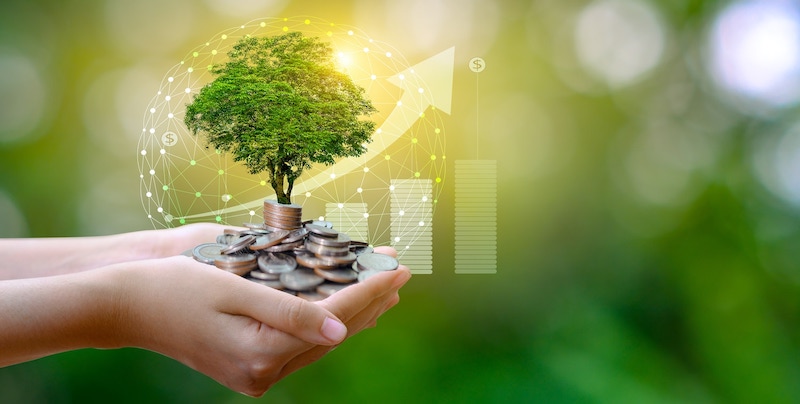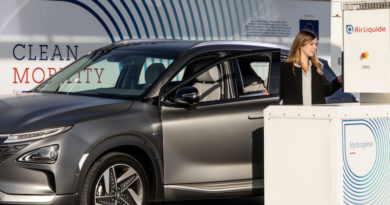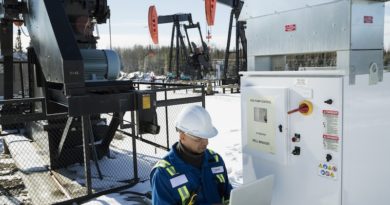
Ethical Investing Pays Off – and Not Just for the Planet
It is not easy to be a responsible investor these days.
Take for example the clean energy area, where the war in Ukraine and the ensuing spike in electricity and fuel prices brought windfall profits to oil and gas. Meanwhile, the sharp rise in interest rates to tame inflation is hurting renewables majors, as these companies have been counting on reasonable borrowing costs and liquidity to finance the substantial upfront investments needed to develop and deploy clean technologies. As a result, renewable stock indices and baskets have been underperforming.
Still, none of this makes losing our nerve a viable strategy. The European Investment Bank Group decided in 2019 to phase out support for unabated fossil fuels, and we ‘re about half-way through the roadmap we adopted in 2020 that is transforming us into a climate bank.
The decision we took was not based on noble intentions only. Of course, we want to finance projects that will create a better world for present and future generations and abide by the unequivocal warnings of the scientific community that unless if we stop greenhouse emissions, we risk an irreversible planetary catastrophe due to biodiversity loss and global warming.
But the main driver of our actions was not climate activism, but our fiduciary duty to protect the interests of our shareholders – EU member states.
These shareholders unanimously committed, also back in 2019, to climate neutrality. This landmark decision of EU leaders was not just words. An elaborate legal framework with progressively tightened timelines and binding targets has since been adopted. Dozens of laws implementing this overarching framework we came to call the European Green Deal have already been voted by the European Parliament and the Council of the EU, and are being transposed into national legislation across 27 member states.
Similarly, across the Atlantic, the U.S. Inflation Reduction Act is triggering a massive wave of new investment into renewables. Clean energy deployment in China is also breaking records and global green growth – from electric cars to heat pumps – now far exceeds even the most optimistic expectations of the previous decade.
A wave of human innovation, policy incentives, carbon pricing, regulation and investment has brought down the costs of clean technologies so much that they now cheaper – and easier to deploy – than fossil fuel alternatives. The International Energy Agency has repeatedly warned this year that even current policy settings could lead us into a glut of fossil fuel infrastructure that the world will not need.
Real-time observations show we are already on the cusp of a peak in fossil-fuel emissions and a structural decline, even in China. In other words, a technologically obsolescent and increasingly uncompetitive source of power is being retired to the long and dark corridors of history. The implications for investors are nothing short of profound.
None of this is to suggest that the road ahead will not be bumpy. The fact that clean energy is the future doesn’t mean that each and every producer in the area will thrive. A lot will depend on sound management, innovation, and maintaining a global level field, which will make sure that innovators, including here in Europe, are not faced with a competitive disadvantage due to market-distorting subsidies.
Global diplomacy and trade enforcement measures are not the only priority which should make it to the to-do list of our policymakers. We also need a conducive, efficient, and clear regulatory environment inside our single market, including a fully developed capital markets union. Fragmentation, as well as usability issues in some of our rules, for example in the nascent taxonomy framework, risk triggering hyperbolic backlashes from vested interests that seek to turn transition policies into an easy scapegoat.
This would be a grave error. Talk of watering down or even backtracking on Green Deal commitments only creates confusion to markets and hampers investment. If we allow ourselves to be stuck into a limbo of indecisiveness, Europe will miss the train of the energy revolution which is already in full swing. The damage to the competitiveness of our economies will be irreparable.
That’s why there shouldn’t be any doubt about our strategic goals and the direction of travel in terms of policy.
Serious issues which may arise along the way can be resolved with targeted measures: for example, with support for households and businesses affected by both the impact of a warming planet and the costs of transition investment. They can also be tackled with well-designed backing for our industries in these uncertain times, such as the European Commission’s Wind Power Package, which the EIB is pleased to support.
At the EU Bank, we see ourselves as a key instrument to advance commonly agreed goals of the governments of our Union. Key among those is the European Green Deal. That’s why we raised our clean energy lending to record volumes, in support of the REPowerEU plan to eliminate Europe’s dependence on fossil fuel imports from Russia or any other authoritarian government that would seek to blackmail us.
Our commitment is confirmed by the fact that we are on track to support €1 trillion in green investment this decade, and we have already reached our Climate Bank Roadmap target to devote at least 50% of annual financing to climate action and environmental sustainability.
Our message to ESG investors is that our decision to phase out support for fossil fuels didn’t have a negative impact on our business.
On the contrary, we avoided the risk of finding ourselves invested into assets that will end up stranded as clean technologies advance.
Commercial lenders, asset managers, and governments should follow the same route. We are bending the curve and the energy transition will happen anyway. We can either embrace change and focus our resources to the future, or stay attached to the past, which would cost dearly both in opportunities and even more so in time that our planet simply doesn’t have. The choic




